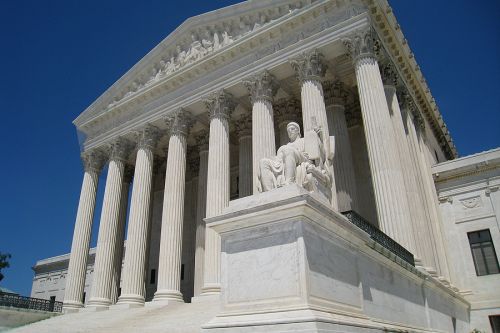Backers of a 2013 Texas law which strengthened health and safety requirements for the state's abortion clinics will continue to support the law as it winds through the court system, following a temporary block of some portions of the law. The Supreme Court temporarily blocked parts of the law on Tuesday, while the Fifth Circuit Court of Appeals considers an appeal regarding the statute. A key part of the state law that was blocked required all abortion clinics to upgrade to surgical facility standards, and until now it had closed all but eight abortion clinics in Texas. The Supreme Court also allowed two clinics a temporary exemption from the part of the law requiring abortionists to have admitting privileges at nearby hospitals. Opponents of the bill say the requirements are more about restricting abortion than about women’s safety. Supporters of the bill, such as Texas Right to Life and the Susan B. Anthony List, say abortion clinics with lower standards than other surgical facilities puts women at undue risk. “We think that the women of Texas deserve better than being subjected to sub-par clinics and sub-par standards, and we’re doing our best to look out for their safety by passing these laws,” Emily Horne told CNA Oct. 15. Horne serves as a legislative assistant with Texas Right to Life. The Susan B. Anthony List, a movement to advance pro-life leadership in the United States, expressed their concerns about the blocking of this bill in a statement from their president, Marjorie Dannenfelser. “Women across the country are suffering at the hands of abortionists. Where are all the watchdogs of women’s health? Abortion politics has superseded authentic concern for the health and safety of women. This is a shameful hour when ‘access,’ at any cost supplants safety and health. Should women stifle their concerns about assembly-line style abortions that prey on the most vulnerable women? We say ‘no!’” The Texas law demanding stricter requirements for abortion clinics was created in response to the case of Philadelphia abortionist Kermit Gosnell, who in 2013 was convicted of three counts of first-degree murder and one count of involuntary manslaughter as a result of his negligent practices. According to the grand juror report on the case, a patient of Gosnell’s died because his clinic failed to meet proper surgical facility requirements, such as wider hallways for easy paramedic access, that could have saved the young woman’s life. “It’s those types of things that they noted in the case that actually are required in surgical center facilities,” Horne said, “And so that’s a specific thing that this law would have changed. We were hoping something like the Gosnell case never happens in Texas as a result of these requirements.” Other parts of the Texas law still stand. The constitutionality of the ban on abortions after 20 weeks, at which point an unborn baby can feel pain, has never been challenged and will remain in effect. “That’s been in place for almost an entire year and saving babies for that long, so that’s been huge,” Horne said. Last October, the fifth circuit court of appeals reinstated the requirement of admitting privileges at a hospital within 30 miles of a clinic after U.S. District Judge Lee Yeakel ruled that the provision was unconstitutional. This requirement is still in place for all but two abortion clinics, one in El Paso and one in McAllen, which received an exemption Tuesday. One argument against the surgical facility requirements is that it would mean expensive upgrades for all abortion clinics, even ones that only provide chemical abortions. However, when chemical abortions fail, women have to be treated surgically. “If there’s a complication, women have to sign a waiver prior to getting a chemical abortion she’s ok with coming back for a surgical abortion,” Horne said, “so in the event of a medical complication they would need a surgical facility anyway. They said they’d refer women to the nearest surgical facility, which might be 100 miles away.” Casey Mattox, a senior counsel with Alliance Defending Freedom, said the law affirms Texans' “freedom to prioritize women’s health and safety over the bottom line of abortionists.” “The Supreme Court’s decision only temporarily and partially prevents the Texas law from going into effect while the 5th Circuit finishes hearing the case. While that is disappointing, it should cause no great alarm. The state’s requirement against cut-and-run abortionists remains in effect for all but two abortion facilities.” Mattox continued: “Likewise, the limitations on chemical abortions up to seven weeks gestation and prohibiting abortionists from sending women home alone to abort have been upheld and remain in effect. We remain confident that the entirety of Texas’s law will ultimately be upheld.” The issues in question with the law up until now have been whether the law can be enforced while the case is still in court. The fifth circuit court has yet to schedule a hearing and officially rule on the full case, but Horne remains hopeful. “Last week when they listed the injunction, they said the reason they were doing so was because of a likelihood of success on the state’s part,” Horne said, “so what the Supreme Court rule on Tuesday doesn’t change what they said there.” “And those are very encouraging words for us.”

